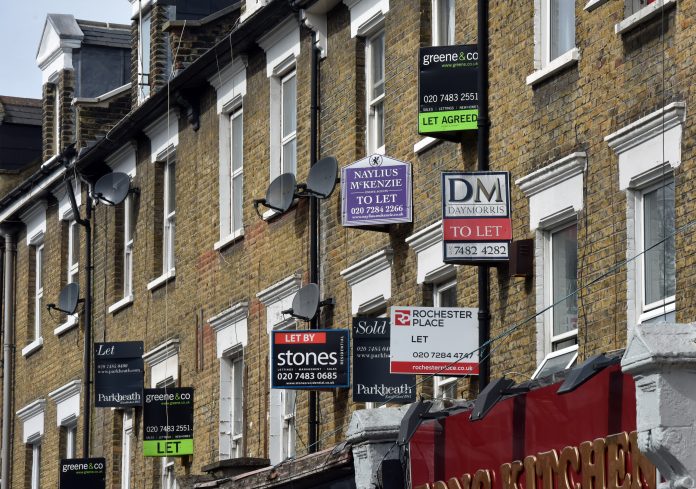The landmark legislation known as the Renters’ Rights Act, abolishing ‘no-fault’ evictions along with a number of other new protections for private renters, aims to rebalance the relationship between landlords and tenants in England
The Renters’ Rights Bill officially received Royal Assent on October 27, 2025, becoming the Renters’ Rights Act and ushering in what the government has called the most significant increase in tenant rights for a generation.
The landmark legislation secures a fairer and more secure future for England’s 11 million private renters by fundamentally changing the legal landscape of private renting as part of the government’s Plan for Change.
The Act delivers on a key government manifesto commitment to rebalance the relationship between tenants and the country’s 2.3 million landlords, aiming to end a system that has historically left renters vulnerable to unfair treatment and insecurity. The legislation received Royal Assent at 7:40 pm, marking a historic moment for housing rights in England.
Ending the fear and protecting tenants: Abolition of Section 21
At the core of the newly minted Act is the long-awaited abolition of Section 21 ‘no fault’ evictions. This pivotal reform ends a practice that has allowed landlords to evict tenants with two months’ notice without providing a reason, a system often cited for threatening thousands of renters with homelessness.
The end of Section 21 marks a seismic shift, empowering tenants to challenge poor conditions and unreasonable rent increases without the omnipresent fear of retaliatory eviction.
The legislation moves to a simpler, periodic tenancy structure. While tenants gain the right to end tenancies with two months’ notice, the Act also provides necessary protections for legitimate landlord interests through strengthened grounds for repossession, ensuring continued investment in the sector.
The new Renters’ Rights Act will ensure stronger protections against ‘backdoor’ evictions by allowing tenants to appeal excessive, above-market rents purely designed to force them out.
UK Prime Minister Keir Starmer hailed the change, stating, “Every family deserves the dignity of a safe and secure home… For too long, millions of renters have lived at the mercy of rogue landlords or insecure contracts… We’re putting an end to that.”
Secretary of State Steve Reed called the Act the “biggest leap forward in renters’ rights in a generation,” stating, “We are finally ending the injustice overseen by previous governments that has left millions living in fear of losing their homes.”
Raising standards for tenants
Beyond ‘no-fault’ evictions, the Act introduces a broad package of reforms designed to empower tenants and raise standards across the sector.
Crucially, the Decent Homes Standard and Awaab’s Law will be applied to the private rented sector for the first time. The former will give renters safer, better-value homes, while the latter sets clear legal timeframes within which landlords must take action to make homes safe where they contain serious hazards.
Other key measures include:
-
Discrimination Ban:
- It will be illegal for landlords and agents to refuse prospective tenants because they receive benefits or have children—a move to ensure everyone is treated fairly when looking for a place to live.
-
Pet Ownership:
- Tenants will have a strengthened right to request a pet in the property, which the landlord must consider and cannot unreasonably refuse. To support this, landlords will be able to require pet insurance to cover any potential damage.
-
New Ombudsman:
- A new Private Rented Sector Ombudsman will be introduced, offering swift, fair, and binding resolutions for tenants’ complaints. The service will have powers to compel landlords to issue an apology, take remedial action, and/or pay compensation.
-
Rental Market Reforms:
- Further reforms will put an end to bidding wars by prohibiting landlords and agents from asking for or accepting offers above the advertised rent. Landlords and agents will be required to publish an asking rent, and accepting offers above this rate will be illegal. Tenants will also be able to challenge unfair rent increases and will be protected from demands for more than one month’s rent upfront.
-
Enforcement:
- Local authority enforcement will be strengthened through expanded civil penalties and new investigatory powers.
Industry and campaigner reaction
The new legislation has been met with strong praise from campaigners. Tom Darling, Director of the Renters’ Reform Coalition, celebrated the “generational upgrade to renters’ rights,” noting that for too long, tenants have been afraid to ask for essential repairs for fear of a Section 21 eviction. Ben Twomey, Chief Executive of Generation Rent, called the new law a “vital step towards re-balancing power between renters and landlords,” stating, “At last, this outdated and unfair law is being sent packing.”
Homelessness charity St Mungo’s Executive Director, Sean Palmer, called the law a “watershed moment” for tenants and “welcome news for everyone committed to ending UK homelessness,” seeing it as a positive, tangible step towards ensuring everyone has a safe and secure home.
From the landlord perspective, Ben Beadle, Chief Executive of the National Residential Landlords Association (NRLA), acknowledged the significance, calling it the “most significant shake-up of the rental market in almost 40 years.” He confirmed the NRLA’s readiness to work with the Government to ensure the new systems are implemented in a way that is “fair, proportionate and deliverable.”
The Act will level decisively the playing field between landlord and tenant and transform the experience of private renting
Housing Minister Matthew Pennycook confirmed that ministers will outline how the reforms will be rolled out in the coming weeks, stating that the Act “will level decisively the playing field between landlord and tenant and transform the experience of private renting.”











